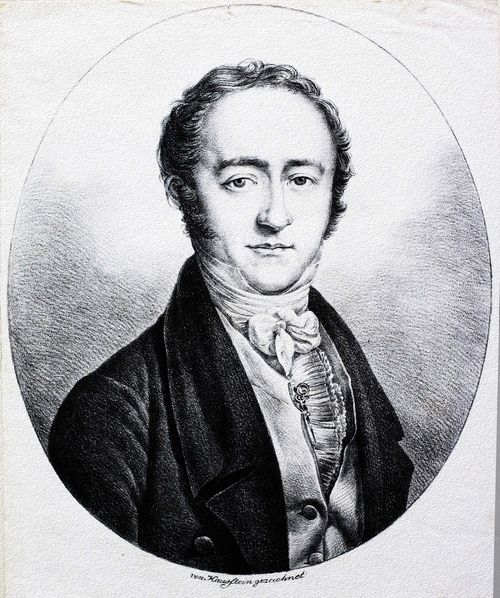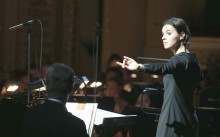Among the participants in LvivMozArt are musicians from various countries, including the piano duo Yaara Tal (Israel) and Andreas Groethuysen (Germany), Sascha Reckert and ensemble Sinfonia di Vetro (Germany), Hauke Berheide (Germany), Edgaras Montvidas (Lithuania), Aurore Baal (France-Switzerland), the duet of sisters Anna and Laura Handler (Germany), Iulia Maria Dan (Germany-Austria), Tobias Feldmann (Germany), Konstantin Manaev (guest contracts), and the National Youth Orchestra of Germany. The fest will also see some of our stars who have received basic education in Ukraine but are living abroad, performing on Europe’s best stages. They are, in particular, baritone Andrii Bondarenko (Ukraine-Switzerland); mezzo-soprano Zoriana Kushpler (Ukraine-Austria); singer, composer, and arranger Mariana Sadovska (Ukraine-Germany); bass Oleksandr Tsymbaliuk (Ukraine-Germany), bass Ihor Tsarkov (Ukraine-Germany), and soprano Sofia Solovii (Ukraine-Italy).
On the whole, there are 30 events on the LvivMozArt billboard, which will be held at the Potocki Palace, the Dominican Cathedral, St. George’s Cathedral, the Garrison Temple of Saint Apostles Peter and Paul, the House of Scientists, the Music Academy, the old tram depot, the Philharmonic, and the Opera and Ballet Theater. The organizers are trying to turn the festival’s map into the map of Lviv’s most interesting places which you always want to show to the guests and, at the same time, listen to classical music.
“This art project will gather the best musicians of Ukraine and the world,” says Oksana LYNIV, fest art director, ex-Leopolitan, conductor of the Philharmonic and Operatic orchestras in Graz, Austria. “Let me remind you that Franz Xaver Mozart was actively shaping a musical milieu in Lviv. He was a noted pedagogue, pianist, conductor, and composer. He founded the St. Cecilia Choral Brotherhood which was in fact the city’s first musical league that established a new European tradition of performing classical music. Therefore, Leopolitans must be proud that Franz Xaver is part of Lviv’s history.”
The forum’s program includes concerts of chamber, sacral, vocal, and symphonic music (not only by the father and son Mozarts, but also by Purcell, Bach, Handel, Vivaldi, Wieniawski, Liatoshynsky, Lysenko, and the contemporary Lviv composers Sehin, Froliak, and Almashi), as well as conferences, exhibits, and interactive programs for children and parents that will last for hours on end every day (August 21-24) on Muzeina Square in the open.
The opening concert of LvivMozArt, with participation of the INSO-Lviv symphony orchestra and the Dudaryk Choir, will take place at the Lviv Opera. The program includes works by Wolfgang Amadeus Mozart and Franz Xaver Mozart.
PREHISTORY
There has long been a legend in the city about the Mozarts’ stay in Galicia. Some even claim that the great Austrian composer’s father Leopold Mozart founded a music society in Lviv. However, music historians have proved that neither Leopold Mozart nor his genius son Wolfgang Amadeus had anything to do with the City of Lion, but the great Mozart’s younger son Franz Xaver (Franz Xaver Wolfgang Mozart, July 26, 1791 – July 29, 1844) really made a considerable contribution to Europeanizing the art life of Galicia.

Photo courtesy of the LvivMozArt festival’s organizers
As Dmytro KOLBIN, the first researcher of the life and oeuvre of Mozart Jr., a professor at the Lviv Music Academy, founder of the Lviv Mozart Society, told The Day, out of Wolfgang Amadeus Mozart’s six children, only two survived – Karl Thomas (who did not inherit his father’s artistic talent) and Franz Xaver who showed a gift for music in his early childhood. So, Franz Xaver Wolfgang inspired a hope in his mother that he will carry his father’s glory throughout his lifetime. This is why she hired excellent musicians to teach him piano playing, composition, and singing: pianist Johann Hummel (a pupil of W.A. Mozart), composers Sigismund von Neukomm (a pupil of Joseph Haydn), Johann Georg Albrechtsberger (a teacher of Ludwig van Beethoven), the “notorious” Antonio Salieri who taught the boy to sing, and others. For this reason, knowing about her son’s brilliant musical talent, she decided to add the name of Amadeus to him. But things went in a slightly different way, for you can’t possibly clone a talent. Franz Xaver seems to have lived all his lifetime in the shadow of a music genius: Mozart the father and the son created 626 and 30 opuses, respectively. Although he was a talented and unsurpassable pianist of a new era and a new style (romantic rather than classical), he was, by contrast with his father, not a genius, which depressed him very much.
“THE MOZART OF LEMBERG”
“All-round education really promoted the successful artistic career of Franz Xaver Wolfgang Amadeus Mozart,” Prof. Kolbin emphasizes, “for he became a composer (albeit not of his father’s magnitude), a concert-giving virtuoso pianist, a conductor, and a good teacher and organizer. Before coming to Galicia, ‘the Mozart of Lemberg,’ as Western Mozart researchers called him later, had already had the experience of piano concerts and the composition of musical opuses in various genres.”
The 17-year-old youth moved from the capital (Vienna) to a faraway province (the estate of Wiktor Baworowski in the village of Pidkameni near Rohatyn) because, as it follows from the letters of Franz Xaver himself to his friend in Vienna, “the attitude to me at home was not exactly the best. After I turned three, I was regarded as the eldest, although I was the youngest. I was alien in my mother’s house, and I had to achieve by myself everything that was needed in life. This depressed me. Searching for a master of playing the piano, a rich Polish count offered me extremely beneficial financial conditions in case I agreed…”

It had never occurred to Franz Xaver that, arriving in Galicia under the contract as a tutor, he would stay behind there for as many as 30 years (1808-38) and spend the greater and the most fruitful part of his life in the region and city of Lviv. After a three-year stay with the Baworowski family, he tutored for a year in the family of the imperial chamberlain, Count Janiszewski, in Sarki near Bursztyn, as well as in the families of Potocki, Czartoryski, and Sapieha. A year later (1813), he writes “Lemberg” (Lviv) as a return address on the envelopes of his letters to the family and friends. Prof. Kolbin points out that Mozart Jr. composed a number of piano, ensemble, and vocal opuses in those years, performing in Lviv as a solo pianist and together with violinists Karol Lipinski, Jacques Fereol Mazas, Joachim Kaczkowski, et al.
In 1818 Mozart went on an almost four-year-long tour of Europe, gave concerts in 69 cities, and came back to Lviv. Researchers believe it was the most productive period in his life. In October 1826 Franz Xaver founded the St. Cecilia Choral Brotherhood. It was Lviv’s first European-style music society which won rave reviews in the press. The society established the traditions of choral music culture in the city and helped artistic professionalism as a whole to meet European standards. It is this choir that performed Requiem 191 years ago, on December 5, 1826, to honor the blessed memory of Mozart Sr. who had died 35 years before. In the following years, too, the choir performed this and other opuses of Wolfgang Amadeus Mozart as well as those of Gallus-Mederitsch, Haydn, and Franz Xaver himself with participation of a theatrical orchestra conducted by Lipinski.
XAVER’S LOVE
What seems to be the happiest and crucial for Mozart Jr. was his longtime association with the family of the regional government’s chief councilor of Italian origin, Ludwig Cajetan von Baroni-Cavalcabo whose wife Countess Josephine di Castiglione was a singer, an art patron, a co-owner of the St. Cecilia Brotherhood, and, as some researchers presume, Franz Xaver’s lover because of whom he stayed behind in the boondocks for so many years. The daughter of the Cavalcabo couple, Julie, was Mozart’s pupil and later performed in concerts together with her mentor (later, no other than Robert Schumann commented positively on her works). Franz Xaver lived for many years in the Cavalcabo’s own house on what was Jesuit Lane (now Hnatiuka Street. Unfortunately, the house has not survived). Analyzing Mozart Jr.’s works of this very period, researchers presume that those were the most romantic years of his life (Franz Xaver writes about love in his diary).
Mozart was the Kapellmeister of the German-Polish city orchestra. Mozart researchers believe that his activities in the region and city of Lviv encouraged the development of musical life in the early-to-mid-19th-century Lviv and had a major impact on its professionalization and Europeanization.
Franz Xaver spent his last years in Vienna. The musical career of Mozart Jr. could not continue in his native city – he performed seldom and did not compose at all. In the early summer of 1844 he went to Karlsbad (now Karlovy Vary) for medical treatment, where he died and was buried.
INDEPENDENT DEVELOPMENT OF IDEAS
Like his father of genius, Mozart Jr. began to compose and improvise at concerts rather early and wrote his first piano concerto at the age of 14 in 1805. He created most of his opuses in the Lviv region. They were usually dedicated to titular patrons or to a certain event. Of particular interest are his chamber instrumental opuses, such as piano miniatures, cycles of variations, Piano Concerto No. 2 in E-flat major Op. 25, Terzetto Op. 29, and choral cantatas Op. 28. The choral cantata “First Spring Day,” dedicated to Caroline Augusta, the daughter of King Maximilian I Joseph of Bavaria, was especially popular in Galicia. Franz Xaver’s interest in Ukrainian folklore also left an imprint on his oeuvre – it is piano variations in D Minor on the theme of the Ukrainian song “My Neighbor’s House is White,” while other publications also mention “Reflections on the Ruthenian Theme.”
The style of Mozart Jr.’s music was at first formed by the influence of the music of his father who he worshipped. But Franz Xaver lived and composed music in a transitional period between classicism and romanticism. For this reason, as Prof. Kolbin thinks, it is difficult to classify his oeuvre within the limits of one style: it shows the features of the “brilliant” style, sentimentalism, and early romanticism. According to researchers of Mozart Jr.’s heritage, his music is an independent development of Mozart’s ideas on the way to Schubert.
The figure of Franz Xaver is brightly inscribed in the history of the making and development of professional and musical art in Lviv. Mozart researchers link his name to many art events, and his works are performed in the present day too, giving profound esthetic satisfaction to listeners.
Incidentally, the forum will be closed on August 25 at the Lviv Opera, and on August 26 this grand concert will be presented in Kyiv at the National Philharmonic of Ukraine, with Oksana Lyniv conducting.







